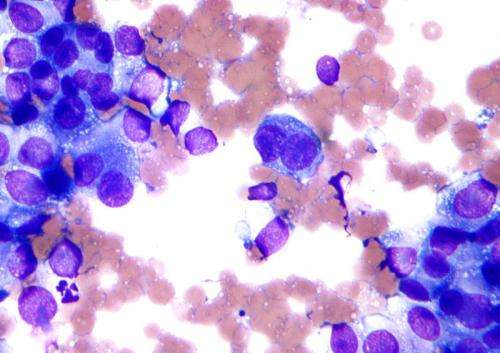Simple steps to help prevent skin cancer

With spring and summer arriving, the air becomes warmer, the sun gets brighter and outdoor activities are more frequent. Naturally, your skin's exposure to the sun increases during this time of year, which results in a greater risk of skin damage, including the development of skin cancer. The good news is most skin cancers can be preventable.
WHAT IS SKIN CANCER?
"Specifically, skin cancer is the abnormal growth of skin cells and usually the result of overexposure to the sun and harmful ultraviolet (UV) rays," says Mayo Clinic Health System oncologist Kevin Cockerill. "Although skin that's most exposed accounts for the majority of cases, well-covered areas of the body, such as your palms or genital area, can also be affected. All pigmentations - dark and light - are subject to skin cancer."
According to the American Cancer Society, skin cancer is the most common cancer in the U.S., with 5.4 million basal and squamous cell skin cancers and more than 76,000 melanoma cases diagnosed each year. Melanoma, the deadliest form of skin cancer, kills more than 10,000 Americans each year - nearly 75 percent of all skin cancer deaths.
WHAT COMMON FORMS DOES SKIN CANCER TAKE?
Skin cancer can take many forms, but Cockerill says the three most common are:
1. Basal cell carcinoma
Beginning in the basal cells in the outer layer of skin, basal cell carcinomas may appear as a pearly or waxy bump, as well as a flat, flesh-colored or brown scar-like lesion.
2. Squamous cell carcinoma
Also in the outer layer of skin, this type of skin cancer forms in squamous cells. It often appears as a firm, red nodule or a flat lesion with a scaly, crusty surface.
3. Melanoma
Melanoma makes up a small fraction of skin cancers, but it's also the most deadly. Symptoms of melanoma include a large brown spot with darker speckles, a mole that changes in color, size or feel, or that bleeds, a small lesion with an abnormal border and sections that appear red, white, blue or bluish-black and dark lesions on your palms, soles, fingertips or toes, or on mucous membranes lining your nose, mouth, vagina or anus.
WHAT CAN YOU DO TO PREVENT SKIN CANCER?
Leading medical experts, including those at Mayo Clinic, make these recommendations for preventing skin cancer:
- Avoid the sun from 10 a.m. to 4 p.m. These are the peak hours of sun strength in North America - even in the winter and on cloudy days.
- Wear sunscreen - at least sun protection factor 15 - throughout the entire year. Reapply sunscreen every two hours or more frequently if you're swimming or sweating.
- Wear protective clothing. Hats with wide brims and clothing that covers your arms and legs are helpful. Sunscreen doesn't block all UV rays, which cause skin cancer.
- Avoid tanning beds. Tanning beds operate with UV lights, damaging your skin and potentially leading to cancer.
- Self-check your skin. If you notice differences, talk with your health care team.
WHO'S MOST AT RISK FOR SKIN CANCER?
"Anyone can get skin cancer, but those at a higher risk include individuals who have a heavy exposure to UV rays, lighter skin, family history of skin cancer, prevalent moles, numerous severe sunburns in the past, weakened immune system and those who live in sunny or high-altitude climates," says Cockerill.
Contact your health care team if you have concerns about skin abnormalities. Skin cancer is treatable when caught in its early stages.
"Have fun as the warm days roll in, but always keep skin cancer prevention in mind," says Cockerill.
©2016 Mayo Foundation for Medical Education and Research Distributed by Tribune Content Agency, LLC.















